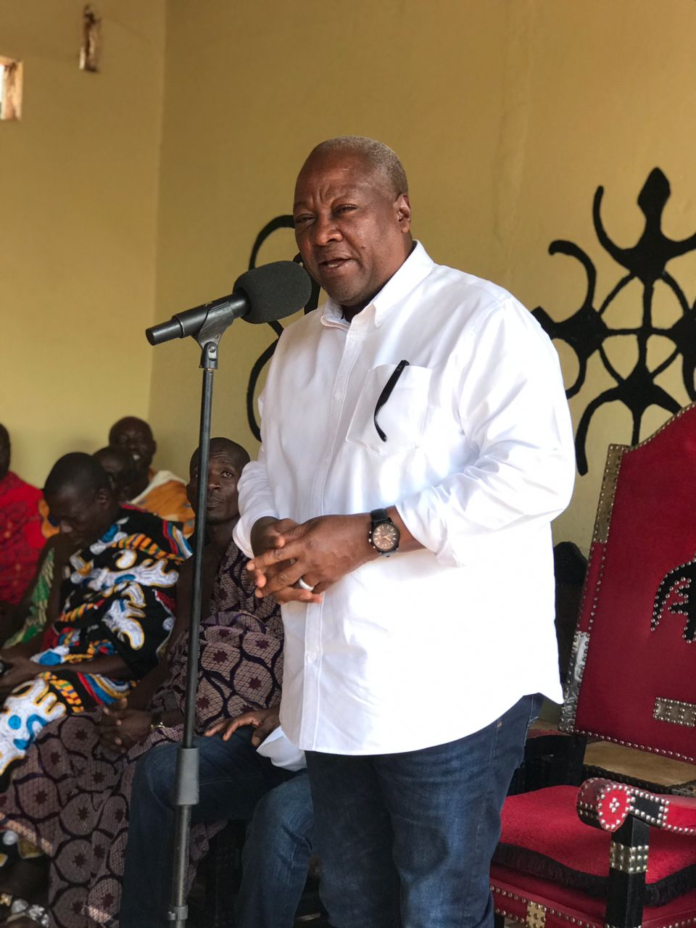The 24-hour economic policy in Ghana aims to achieve sustainable growth and development in the country will drastically reduce unemployment and poverty rates between 50-70%.
The policy outlines a strategic roadmap for various sectors, including mining, agriculture, tourism, infrastructure, education, entertainment, manufacturing, and the service industry, with the goal of increasing revenue and foreign exchange.
The policy championed by former president and leading opposition leader, H.E John Mahama of the Republic of Ghana, recognizing the need for a transformative economic model to achieve durable peace and security driven by digital transformation and innovation, presents an opportunity for Ghana to revolutionize key sectors and position itself as a global economic force and a beacon of growth and sustainable social democracy in the developing world.
In the mining sector, the policy proposes implementing advanced digital technologies for efficient extraction, processing, and prudent management of mineral resources. This will ensure responsible and sustainable mining practices and community engagement. The policy advocates for a national forum to deliberate on the sector’s strategic direction, including the use of advanced technologies such as drones, satellite imaging, autonomous vehicles, sensors, and block-chain for transparent and secure recording of mining activities.
The policy also emphasizes responsible mining practices, including environmental impact assessments, reclamation, rehabilitation, and waste management. It encourages the use of renewable energy sources and water conservation measures to minimize the environmental impact of mining operations. Additionally, the policy promotes stakeholder consultation, local employment, skills development, and community development programs to ensure the socio-economic development of local communities across the country.
It is important to note that, the mining sector plays a crucial role in Ghana’s economy, contributing significantly to employment, revenue, and foreign exchange. According to the Ghana Chamber of Mines, the mining sector employs over 100,000 people directly and indirectly, with an estimated 16,000 people working in small-scale mining operations.
In 2019, Ghana’s mining sector generated over $3.3 billion in revenue, representing a 12.7% increase from the previous year. Gold remains Ghana’s primary mineral export, accounting for over 90% of the sector’s revenue. However, the sector also holds significant potential for other minerals, including bauxite, manganese, Lithium, diamonds and Iron Ore.
Despite the sector’s potential, mining operations in Ghana have faced challenges related to environmental and social impacts, illegal mining, corruption and inadequate regulation. The sector also faces rising global pressure to adopt sustainable and responsible practices.
To address these challenges and increase revenue, the 24-hour economic policy proposes implementing advanced digital technologies for efficient extraction, processing, and management of mineral resources. The policy advocates for responsible mining practices, including environmental impact assessments, reclamation, rehabilitation, and waste management, and encourages the use of renewable energy sources and water conservation measures to minimize the environmental impact of mining operations.
The implementation of the 24-hour economy, fuelled by digital transformation and innovation, presents an opportunity to revolutionize key sectors and create job opportunities that operate around the clock. In the allied services industry, for example, the policy proposes creating a 24-hour economy by promoting the development of night-time economies, such as bars, restaurants, and entertainment venues. This will create employment opportunities for people who prefer to work outside the traditional 9-5 workday .
In the tourism sector, the policy proposes promoting the development of night-time economies, such as night markets, power/energy schemes supported by necessary security architecture to ensure safety and business continuity. This will create employment opportunities for people in the tourism and hospitality industry, such as chefs, servers, bartenders, and waiters and, many others.
By implementing these measures, Ghana’s mining sector can continue to contribute to the country’s economic development while ensuring responsible and sustainable practices that benefit local communities and the environment.
Overall, the 24-hour economic policy proposes a comprehensive strategic roadmap for sustainable growth and development in Ghana, with a focus on responsible and sustainable practices across various sectors
The writer is a leadership and governance Expert , a former Special Assistant to Flt Lt Jerry John Rawlings, Fellow , Chartered Management Institute, UK and Co- Author, A Siege of Today: The Era of ICT and New Media .


